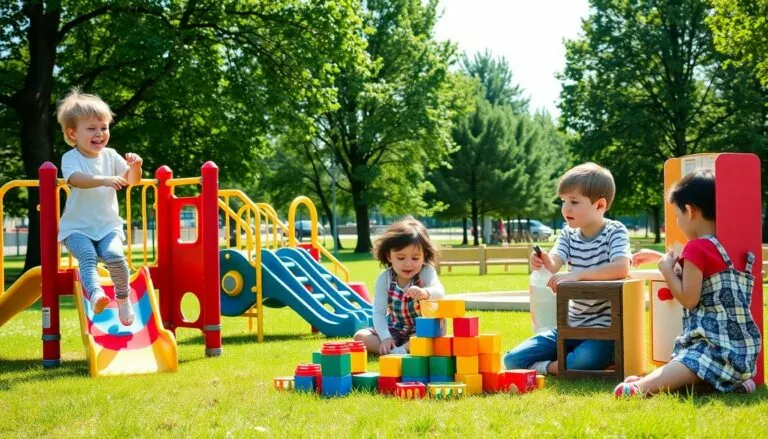Table of Contents
ToggleWhen it comes to education, traditional boarding schools aren’t the only game in town. Enter alternative boarding schools, where creativity meets curriculum in a delightful dance of learning. These unique institutions offer a refreshing break from the cookie-cutter approach, providing students with hands-on experiences and personalized education that can ignite their passions and unleash their potential.
Overview of Alternative Boarding Schools
Alternative boarding schools provide innovative educational experiences that differ significantly from traditional models. These institutions emphasize personalized learning, allowing students to engage with curricula in ways that suit their individual interests and strengths. Such schools often integrate hands-on activities, fostering real-world skills alongside academic knowledge.
Curriculums at alternative boarding schools can include varied subjects, from arts and sciences to leadership and social responsibility. Educators prioritize creating a supportive environment where students feel comfortable exploring. Many of these schools employ experiential learning techniques, such as project-based assignments that encourage collaboration and creativity.
Class sizes in alternative boarding schools tend to be smaller, enabling personalized attention for each student. Educators can better assess and meet students’ unique needs and learning styles. Additionally, alternative boarding schools typically focus on holistic development, nurturing social, emotional, and intellectual growth.
Moreover, alternative boarding schools often incorporate diverse educational philosophies, such as Montessori or Waldorf methods. These approaches enrich the learning experience, blending academic rigor with life skills. Students can connect deeply with their peers and educators, fostering a strong sense of community.
In many cases, alternative boarding schools encourage student autonomy, empowering learners to take charge of their educational journey. This autonomy cultivates self-discipline and responsibility, essential traits for future success. Families seeking a distinctive approach to education often turn to alternative boarding schools for their innovative programming and supportive environments.
Benefits of Alternative Boarding Schools
Alternative boarding schools offer numerous advantages for students. These unique institutions foster an environment conducive to personalized learning and individual growth.
Individualized Learning Approaches
Individualized learning approaches stand out as a primary benefit of alternative boarding schools. Customized curricula engage students in ways that reflect their interests and passions. Teachers adapt lessons to meet students’ specific learning styles and needs. Smaller class sizes enable educators to provide focused attention, ensuring that each student receives the support necessary for success. Project-based learning allows students to apply concepts in real-world contexts, enhancing understanding and retention. With these tailored experiences, students often develop a stronger connection to their education.
Focus on Holistic Development
Holistic development remains a cornerstone of alternative boarding schools. These institutions prioritize nurturing social, emotional, and intellectual growth. Students participate in a well-rounded curriculum that emphasizes critical thinking, creativity, and teamwork. Various educational philosophies enrich the learning environment, promoting diverse perspectives and experiences. Students engage in activities that develop life skills, such as leadership and social responsibility. This balanced focus prepares them not only academically but also equips them for future challenges. With such comprehensive support, students cultivate a sense of self and a readiness for adulthood.
Types of Alternative Boarding Schools
Alternative boarding schools encompass diverse educational approaches tailored to student needs. These institutions offer unique philosophies and models that significantly differ from traditional settings.
Therapeutic Boarding Schools
Therapeutic boarding schools prioritize mental health and emotional development. Students facing challenges such as behavioral issues, anxiety, or trauma benefit from a structured environment that promotes healing. Qualified staff, including counselors and therapists, provide support through specialized programs. These schools integrate academic learning with therapy, encouraging students to engage in personal growth. Smaller class sizes allow for individualized attention, fostering a nurturing atmosphere. Families seeking a holistic approach often choose therapeutic boarding schools for the emphasis on both education and emotional well-being.
Progressive Education Models
Progressive education models focus on experiential learning and student-driven inquiry. Schools utilizing this approach often incorporate innovative teaching methods that prioritize critical thinking and collaboration. Project-based assignments invite students to explore subjects deeply, fostering creativity and independence. Teachers act as facilitators, guiding learners rather than dictating information. Class dynamics typically emphasize teamwork, allowing students to develop social skills in a supportive environment. This model attracts families interested in a creative, personalized education that aligns with their child’s interests and strengths.
Choosing the Right Alternative Boarding School
Selecting an alternative boarding school greatly impacts a student’s educational journey. Thorough evaluation ensures the fit aligns with a child’s unique needs and interests.
Factors to Consider
Academics play a crucial role, with curricula designed around students’ strengths. Consider class sizes; smaller groups allow for personalized attention. Visit the campus environment to assess facilities and resources; an inspiring setting enhances learning. Evaluate the school’s philosophy to ensure it resonates with family values. Look at staff qualifications; experienced educators contribute significantly to student success. Social aspects also matter. Social interactions and peer relationships influence personal growth. Lastly, examine extracurricular offerings that may complement academic learning, such as arts, sports, and community service.
Questions to Ask During Visits
Inquire about class size to better understand student-to-teacher ratios. Ask about curriculum flexibility; accommodating individual interests is vital for personal growth. Discuss available support services, including tutoring and counseling options. Observe teaching styles during classes; hands-on approaches often indicate experiential learning opportunities. Clarify assessment methods; knowing how progress is tracked informs parental involvement. Explore community engagement opportunities that the school provides. Finally, ask about graduate outcomes; successful alumni can illustrate the effectiveness of the school’s programs.
Conclusion
Alternative boarding schools offer a refreshing approach to education that prioritizes individual growth and hands-on learning. By fostering creativity and critical thinking in a supportive environment, these institutions empower students to take charge of their educational journeys. Families seeking a unique educational experience will find that alternative boarding schools not only cater to academic needs but also nurture emotional and social development.
Choosing the right school is essential for aligning with a child’s interests and strengths. With diverse options available, families can find a setting that encourages exploration and personal responsibility, preparing students for future success in a rapidly changing world.








